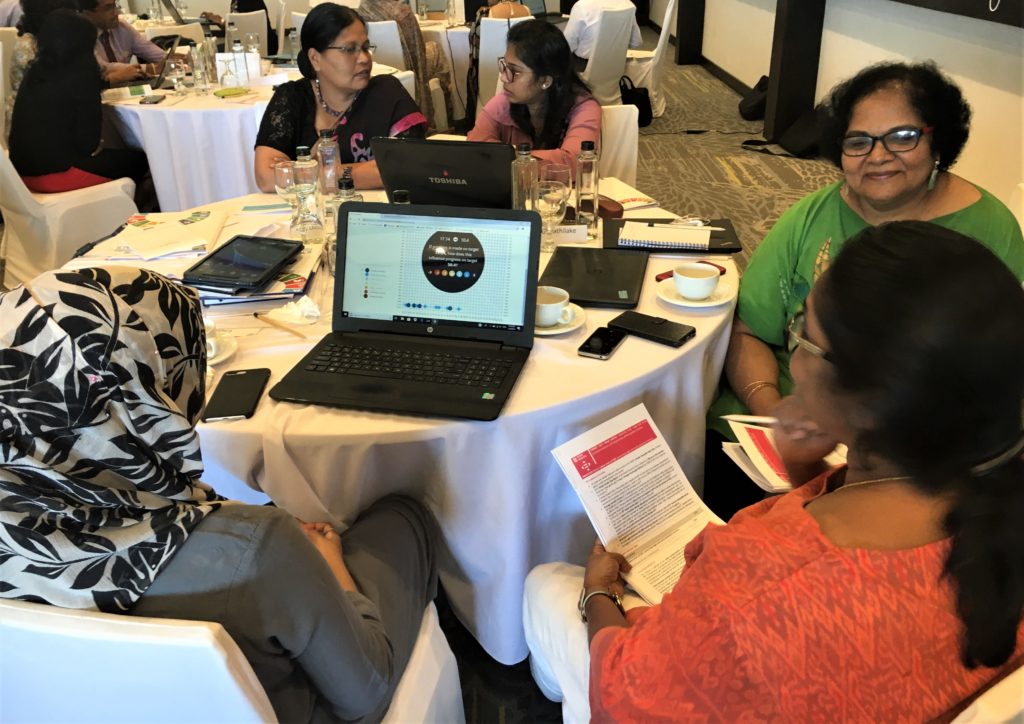Using SDG Synergies in the Mapping Interactions between SDG Targets project in Sri Lanka

This case study is part of the SEI Urban Toolbox for Liveable Cities which has been developed by the SEI Initiative on City Health and Wellbeing. The Urban Toolbox is a collection of tools, developed within SEI or in coordination with SEI, aimed at supporting planning and decision-making for improving the health, well-being and resilience of city residents and urban systems more broadly.
This case study demonstrates how the SDG Synergies Tool can be used to gather input from resident to inform city planning and development.
Introduction
SDG Synergies is being used in the ongoing project Mapping Interactions between SDG Targets, which aims to inform national policymaking and implementationby providing tailored analysis of critical interactions between Sustainable Development Goals.
Sri Lanka’s Ministry of Sustainable Development and Wildlife and Ministry of National Policies and Economic Affairs led the selection of 36 SDG targets to reflect national policy priorities for the medium term. In January 2019, around 40 experts representing government, civil society, the UN Development Programme and the UN Resident Coordinator’s Office, national experts and academia gathered for a two-day workshop to discuss and score target interactions.
The project was implemented by the Ministry of Sustainable Development and Wildlife and Ministry of National Policies and Economic Affairs, together with UNDP Asia and the Pacific, UNDP Sri Lanka and Stockholm Environment Institute, with technical support from the Centre for Poverty Analysis.
Outcomes and Impacts
After the workshop, SEI analysed the results, using network analysis methods to turn the scoring results into a knowledge base on SDG interactions that could support policy prioritization, cross-sectoral collaboration and policy coherence.
Among other findings, policy coherence (SDG target 17.14) and reduced corruption (target 16.5) stood out as the strongest enablers of progress on the 2030 Agenda as a whole. In contrast, increasing access to drinking water (target 6.1) and improving housing (target 11.1) were identified as having a relatively large number of potential trade-offs with other targets.
The outcomes of the workshop and analysis will serve as input in the formulation of national policies for sustainable development and inform national and provincial planning and budget analysis in Sri Lanka.
(0) Comments
There is no content